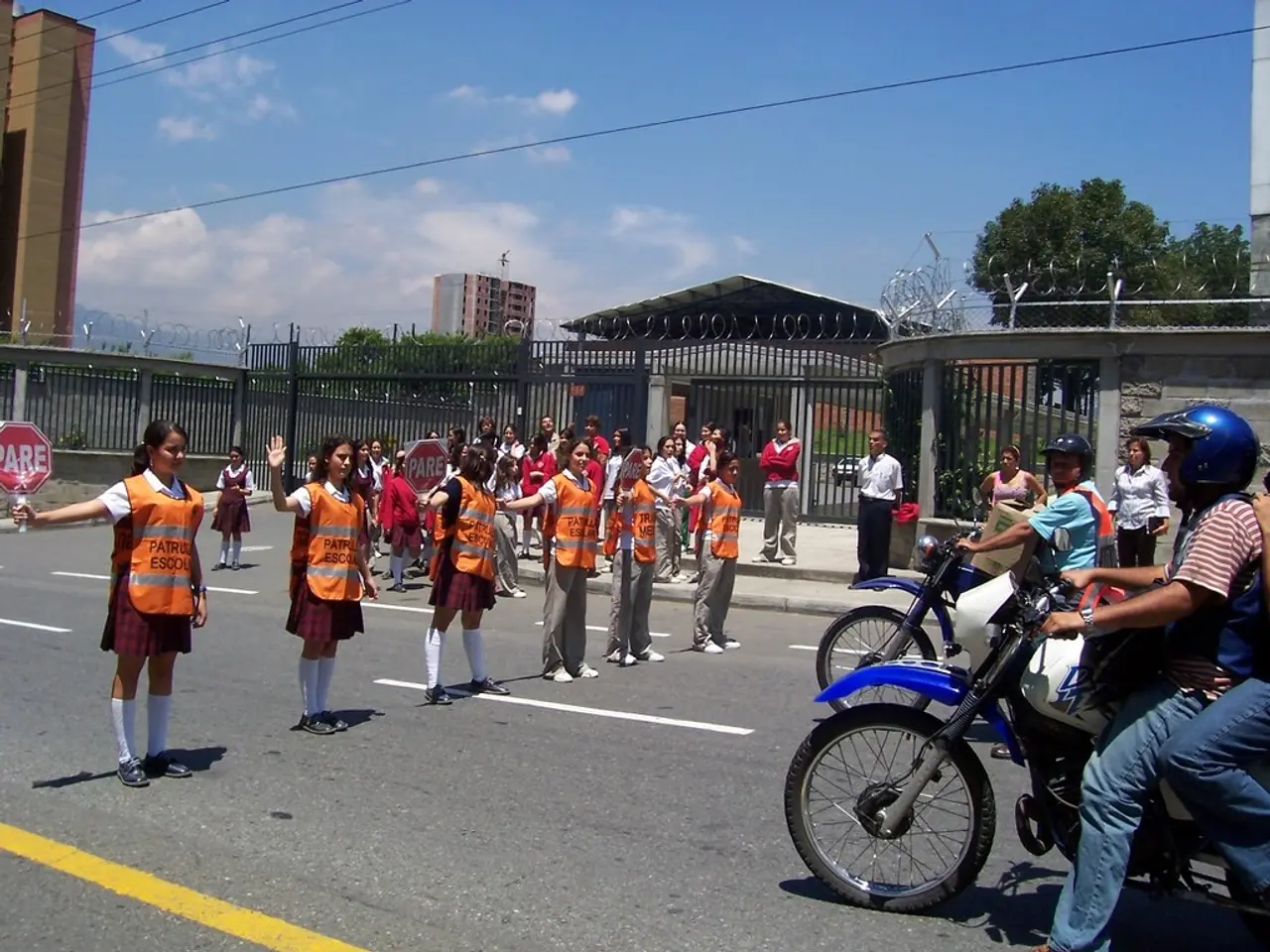Ontario requires teachers to acquire knowledge about law enforcement within schools on a Professional Activity (PA) day.
In Ontario, the School Resource Officer (SRO) program has become a subject of debate among educators, community members, and human rights advocates. The program, mandated in professional activity (PA) days for educators, focuses on keeping schools safe through a comprehensive approach, including age-appropriate safety presentations on topics like cybercrime, human trafficking, road safety, and suicide prevention [1].
The SRO program's purpose is to equip educators with knowledge on safety policies and collaboration with police to support a safe school environment. However, reactions towards the program are mixed. Some school boards, such as the Toronto District School Board (TDSB), have decided to end the SRO program, citing concerns about its impact on racialized students and human rights [3].
The Ontario Human Rights Commission (OHRC) recognizes the importance of protecting student safety but emphasizes that decisions to involve police in schools should respect human rights principles as set out by the Ontario Human Rights Code [3].
There are broader community and social concerns linked to the SRO program. Some argue that the program could lead to the criminalization of student behavior and increased distrust between students and police. On the other hand, some highlight the need for police presence in schools to ensure safety and clarify self-defense laws [5].
Despite the controversy, the four themes to be included over the provincially directed professional activity days reflect the government's focus on a strong, accountable education system that prioritizes student achievement. Schools are encouraged to work cooperatively with police partners on the two yearly lockdown drills, keeping staff up to date on procedures [2].
Not all school boards offer the SRO program. For instance, Ottawa's police services focus on community building outside of schools, leaving the safety education aspect to teachers [4]. In Toronto, the Toronto Catholic District School Board continues to work with Toronto Police Services and school communities through the Neighbourhood Community Officer (NCO) program and SafeTO to create safe, inclusive, and welcoming learning environments for all students [6].
The SRO program has sparked protests in Toronto due to concerns about its impact on racialized students. Martha Hradowy, president of the Ontario Secondary School Teachers' Federation, argues against a top-down, one-size-fits-all approach to professional development, stating that teachers and education workers in Ontario believe they should learn how to directly support students, not about the SRO program [7].
As the debate continues, it is clear that the SRO program presents complex issues that require careful consideration and respect for all perspectives to ensure the safety and well-being of students in Ontario schools.
References: 1. Ontario Public School Boards' Association 2. Bill 33, recently introduced by the province 3. Ontario Human Rights Commission 4. Ottawa Police Services 5. Toronto Police Services 6. Toronto Catholic District School Board 7. Ontario Secondary School Teachers' Federation
- The School Resource Officer (SRO) program, present in Ontario schools, has stirred protests in Toronto due to concerns about its impact on racialized students.
- Reactions towards the SRO program are mixed, with some school boards, like the Toronto District School Board (TDSB), deciding to end it due to concerns about its impact on racialized students and human rights.
- The Ontario Human Rights Commission (OHRC) recognizes the importance of protecting student safety but emphasizes that decisions to involve police in schools should respect human rights principles.
- news outlets have reported on the debate surrounding the SRO program, highlighting concerns about its impact on community relations, student behavior, and human rights.
- To ensure student safety, the government's focus on the SRO program during professional activity days reflects a priority on a strong, accountable education system that prioritizes student achievement.
- In contrast to some school boards, Ottawa's police services focus on community building outside of schools, leaving the safety education aspect to teachers, demonstrating a different approach to addressing school safety concerns.







